
How Can I Help My Child Build Resilience After Trauma?
Helping a child recover from trauma begins with restoring a sense of safety and predictability in their world. When a child feels heard, understood and

Helping a child recover from trauma begins with restoring a sense of safety and predictability in their world. When a child feels heard, understood and

Key Takeaways: PDA is rooted in anxiety and nervous system responses, not behaviour choice Autonomy is a fundamental need for PDAers Persistent Drive for Autonomy

Key Takeaways: Online tutoring for SEN children can reduce anxiety by offering a familiar, predictable learning environment. Many SEN pupils benefit from one-to-one online tutoring

Key Takeaways from SENsational Tutors’ PR and content lead, Milly Allinson: Valuing neurodivergent strengths leads to better outcomes Disengagement and absenteeism are systemic, not behavioural

Key Takeaways: Supporting PDA pupils in education requires reducing demands, not increasing control. PDA is an anxiety-based autistic profile, not oppositional behaviour. Traditional classroom strategies

Key Takeaways: Children with SEND can face a higher risk of bullying, often linked to how they communicate or stand out from peers. Bullying is

Key Takeaways: You are your child’s best advocate and your voice matters at every IEP meeting. Preparing in advance can help you feel more confident

Key Takeaways: Returning to school after the holidays can be just as challenging for SEN children as starting a new school year Rebuilding routines gradually

Key Takeaways: Keep goals small, flexible, and pressure-free, without strict outcomes or deadlines. Let the child lead, with goals that reflect their interests and neurotype

Key Takeaways: The sensory challenge of Christmas can be overwhelming for children with SEN due to increased noise, lights, smells, textures, and changes in routine.

Key Takeaways: Dyslexia is a neurological difference, not a sight issue or a measure of intelligence, and it affects how the brain processes language. Persistent

Autism.org.uk suggests, “If your family member or the person you support has meltdowns, find out how to anticipate them, identify their causes and minimise their frequency.” https://www.autism.org.uk/advice-and-guidance/topics/behaviour/meltdowns/all-audiences Managing

There is an array of therapies open to autistic children that can have a significant impact on their life skills. Having autism can be difficult

The Christmas countdown is on! If you’re familiar with Christmas shopping, you’ll know it’s not always snowflakes and marshmallows. Finding SEN-friendly Christmas gift ideas for

Christmas is just around the corner, and there’s no better time to make memories with the whole family! However, for SEN children, the increased noise

If you’re considering private tutoring for your SEN child, it’s natural to have questions about the process. Many SEN children have had traumatic experiences within
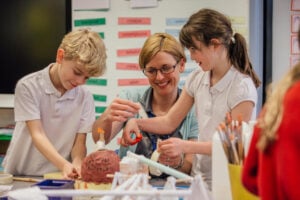
Earlier this month, SENsational Tutors attended the TES SEND Show to connect with people who support SEND and discover the latest insights. Milly Allinson, our

Dyslexia is a common learning difference which affects how individuals process language and can make reading and writing more challenging. Ten per cent of the

How would you define ADHD (Attention Deficit Hyperactivity Disorder)? Many still think of a child with excessive energy. A child who can’t concentrate or disrupts
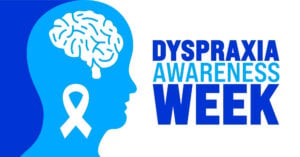
Dyspraxia, or DCD (Developmental Coordination Disorder), can affect a person’s co-ordination and motor skills. This can translate into difficulties in these areas: movement, writing, working

Visual resources can bring a sense of security and comfort to autistic students. The world can feel confusing or bewildering for autistic learners, and life

The House of Education Committee has just published its inquiry report “Solving the SEND Crisis”. https://committees.parliament.uk/publications/49536/documents/264041/default/ https://committees.parliament.uk/committee/203/education-committee/news/209313/solving-the-send-crisis-report-calls-for-culture-shift-and-funding-to-make-mainstream-education-genuinely-inclusive/ The inquiry emphasises a need to embed SEND

Children from all walks of life are likely to experience pressure during exam periods. For children with SEND (Special Educational Needs and Disabilities), there are

Nearly one-third of 16-24 year olds in the UK (31%) reported some evidence of depression or anxiety in 2017/2018. This is up from the previous

FASD Awareness Day is next week on the 9th of September. This neurobiological condition is caused by prenatal exposure to alcohol. FASD, (Foetal Alcohol Spectrum

Approaching a new school year can trigger a range of emotions for children, parents and teachers alike. However, for families and children with SEND, there

Learners with autism face additional challenges and need consistent help to unlock their full potential. However, whilst we must help autistic learners overcome potential difficulties,

This is the third in our series of UK SEND statistics as we look into the age of children in the UK who have an

The summer holidays can bring mixed feelings. No more school runs! No more homework! On the flip side, with round-the-clock parenting and no fixed schedule,

Young people with FASD (Fetal Alcohol Spectrum Disorder) may encounter a range of challenges, such as: Difficulties with learning Delays in speech Excessive energy Concentration

The dyslexic community in the UK is sizable; “It’s estimated up to 1 in every 10 people in the UK has some degree of dyslexia.”

Most people may be aware that young people with autism tend to be resistant to change, but why is this the case? The link between

What is the Link Between ADHD and Anxiety and how can I Support my Child? Those who are familiar with the symptoms of ADHD (Attention-Deficit/Hyperactivity

Trauma can arise for multiple reasons, and this has the potential for huge repercussions throughout all areas of life. Children who have experienced trauma may

In 2019, The British Dyslexia Association found that, “dyslexia is the most common specific learning difference, affecting between 6.6 and 9.9 million people in the

This is the second in our series of UK SEND statistics as we look into the numbers, stats and figures across many categories of SEND

Before looking at how ADHD (Attention-Deficit/Hyperactivity Disorder) affects learning, it’s essential to recognise how the neurological implications of ADHD can influence a child’s access to

Dyslexia is a neurological condition that alters the way the brain accesses and uses language. It influences more than just reading and writing; possibly impacting

“Around one in 57 (1.76%) children in the UK are on the autistic spectrum, significantly higher than previously reported” As suggested by Department of Psychiatry,

Trauma is defined as “stressful, frightening or distressing events that are difficult to cope with or out of our control. It could be one incident,

This is the first in our series of UK SEND statistics as we look into the numbers, stats and figures across many categories of SEND
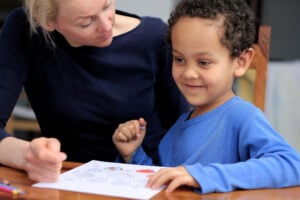
In an article entitled ‘The Rise of AuDHD’ in April 2024, The Guardian revealed that one study by researchers at Duke University found: “Up to

The improvements in Aaron’s well-being, effort and attainment have been evident on many levels. He is in a better place emotionally, socially, environmentally and academically.
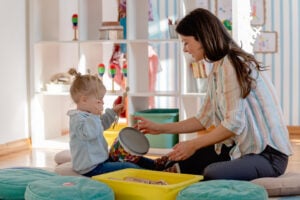
Compared to mainstream schools, EOTAS offers a significantly better temporary solution for Sandy. This environment provides a structured routine, enabling her to better understand her world.

Who: FRAMELESS – Marble Arch When: 18th February 2025 What: Interactive art experience How long: 2 hours Introduction FRAMELESS in London’s Marble Arch offers an

“There are 700,000 autistic people in the UK”. However, a recent study by The Lancet, in 2023, suggests this figure is substantially higher. There is
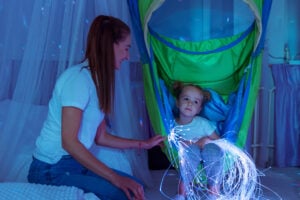
In June 2024, GOV.UK recorded that “Over 1.6 million pupils in England have special educational needs (SEN)”. This was recorded as, “an increase of 101,000
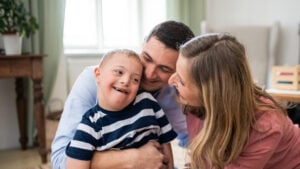
As parents strive to give their children tools to carve out positive friendships and social skills, it is helpful to remember that children with SEND

Max is flourishing under EOTAS. It has been a highly successful transition for him, and it is expected that he will continue on a package throughout his high school years.
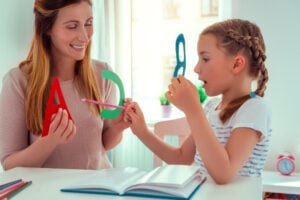
EOTAS has been a breath of fresh air for Curtis, releasing many of the stresses he encountered at school, replacing them with a bespoke learning plan in the best possible learning environment.

When a child has SEND, (Special Educational Needs and Disabilities), families may initially find themselves researching a maze of information that falls under the umbrella

The website ADHD UK states that “a research survey of 10,438 children between the ages of 5 and 15 years found that 3.62% of boys

Gaming is very much embedded in the culture of young people today, allowing them to escape and construct, create and conquer in a fantasy virtual
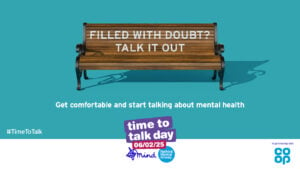
“Time to Talk” day is approaching on 6th February 2025, presenting a chance to open new conversations about anything that may impact our mental health.

Love it, like it, or loathe it — most of us have an opinion about maths. Those who “loathe” it may recall maths as long,

Education Otherwise Than at School (EOTAS) was first recognised by Parliament during the preparation of the Children and Families Act 2014. Subsequently, Section 61 of

Gestalt Language Processing (GLP), is a style of learning language where children initially memorise phrases, and then work backwards to eventually learn the meaning of words.

We often talk about the challenges faced by young people with Special Educational Needs and Disabilities (SEND) but with the right support, SEND individuals can

Pathological Demand Avoidance, or PDA as it is more commonly known, is a neurological condition. Currently, most professionals work alongside the premise that if a

It is estimated that approximately 80% of people who have autism will also experience burnout. Autistic burnout occurs when a person with autism can no

School refusal describes a child’s consistent wish to avoid school, ranging from occasional days at home to a total rejection of school culture. Children’s charity,

Dyslexia impacts on a person’s ability to learn, and quite often can remain with someone throughout their adult life. It is often assumed that people

An Education, Health and Care Plan (EHCP) is an important legal document for a child that has SEND (Special Educational Needs and Disabilities). It will

ARFID, a term created in 2013, is an acronym of “Avoidant/Restrictive Food Intake Disorder”. ARFID children will experience issues with food choices, often exhibiting fears

EOTAS, (Education Other Than at School), is a phrase now synonymous with the recognition of children who cannot be taught in school. These children require

Pathological Demand Avoidance, or PDA as it is widely known, was defined as a neurological condition in the 1980s. It is not easy to know

Statistics from the website “ADHD UK” estimate that there are 708,000 children living in the UK with ADHD (Attention Deficit Hyperactivity Disorder). Children with the

Safety is at the core of life. It is a parent’s role to safeguard their children and a teacher’s role to safeguard their students in

It is estimated by the British Dyslexia Association that 10% of people in the UK have dyslexia. From this statistic, 4% of the population are

Communication is our lifeline; it allows us to create friendships, convey our feelings and learn about our world. We cannot be sure how many people

When we mask, we camouflage and present a different reality to the world. The neurotypical population may mask to ease their nerves on their first

Coined as a condition in the 1980s, Pathological Demand Avoidance, or PDA as it is more commonly known, has only become more widely recognised since

The pre-teen years, when a young person begins the transition from childhood to adolescence, are a difficult time for most children. This period coincides with

Some people look back on their schooldays with great fondness while others shudder to recall harsh teachers and playground spats. But if you were to

If you’ve got more than one child, they are very unlikely to have the same temperament and interests and might even have wildly differing personalities

We all experience a range of emotions as we go about our daily lives. We may, for example, feel irritated at the long queues in

In the UK, it’s the responsibility of local authorities (LAs) to ensure that all children receive an appropriate education up to the age of eighteen.

Although we often hear that autistic people struggle to find employment and a meaningful role in the world, Max Green is proof that it is

We often hear people express concern that kids spend too much time online these days when they should be out in the fresh air, getting

Nurturing – providing food, comfort, protection or support – is often associated with looking after pets or plants or bringing up children. Certainly, all children

‘Trauma’ is a word we hear a lot of these days and for many people, it suggests an event or set of circumstances where something

If a person has been diagnosed with autism, it’s highly likely that they will also have other conditions alongside such as dyspraxia, sensory processing disorder,

Becoming a parent is a huge life-change but most people muddle along, meeting each challenge as it arises and doing their best to raise happy,

We often hear how parents struggle to obtain an autism diagnosis for their child. Long waiting lists, lack of funding from local authorities and sometimes

Any specialist discipline from Engineering to Fine Art has its own ‘lingo’ and the field of education is no different. When it comes to children

Even if you haven’t heard of the term ‘FASD’ – Foetal Alcohol Spectrum Disorder – you’re probably aware that drinking alcohol while pregnant isn’t good

Society is gradually becoming more aware of how autism presents itself in females. Until fairly recently, it was widely believed that ASC was largely a

When a child has SEND, families very quickly need to acquire all kinds of specialist knowledge. In addition to understanding the young person’s condition and

If you’ve ever tried to help your child with their maths homework, only to panic that you don’t know what you’re doing, you’ll understand just

According to the dictionary, ‘alexithymia’ is ‘the inability to recognise one’s emotions and describe them’. It often occurs as part of autism and other neurodiversities

Charlene Andruskevicius has twin sons, Oliver and Harry, who are now eighteen. Harry is autistic, visually and hearing impaired and has the cognitive ability of

It’s well-known that neurodivergent people can have food challenges. Reluctance to eat or following a restricted diet, for example, are common issues in neurodiverse children

If your child has any kind of special need, they could face different challenges to most of their peers. On top of that, because everyone

As we’re often told, many autistic youngsters are welded to their computers and tablets. Playing games, looking at websites, or scrolling through social media channels

‘Time to Talk Day’ takes place on February 1st and is now in its tenth year. Organised by mental health charities ‘Mind’ and ‘Rethink Mental

Many young people hit a patch where they lose interest in their studies. This might be due to any number of factors such as teenage

As society becomes more aware of PDA – pathological demand avoidance – as a different presentation of autism, some parents are gradually realising that the

The term ‘EOTAS Package’ may sound like a cut-price holiday to a little-known Greek island but it actually stands for ‘Education Other Than At School’.

When a person is described as having experienced ‘trauma’, this usually means they have gone through or witnessed events that are extremely frightening or upsetting.
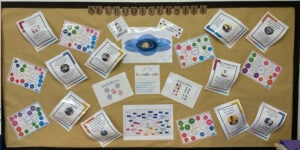
There can be lots of reasons why a child refuses to go to school but whatever the causes, it can be tricky, stressful and time-consuming

The Christmas period often inspires a flurry of creative activity in even the most Scrooge-like individuals. There are presents to wrap, cards to make and

We often hear how difficult it is for a person with ASC (autism) to find any kind of employment. According to the National Autistic Society,

A number of adults who work in offices came to appreciate the benefits of working from home during the Covid lockdowns and for many people,

Life changes when you become a parent and even more so when you have a child with special needs. Learning to understand and adapt to

Falling out with brothers and sisters or school friends, learning how to manage relationships and emotions, and understanding how to negotiate conflicts is part of

‘Executive function’ or ‘executive functioning skills’ refers to a set of cognitive skills that enable us to make plans, organise information, follow instructions, maintain focus,

According to the British Association of Play Therapists’ website, ‘Play is children’s primary form of communication. Children tell us about their inner world through play

If someone’s autistic, it is likely to affect all aspects of their life from their relationships, education and employment to their health, hobbies and ability
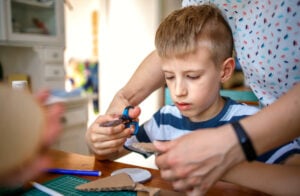
In some ways, dyspraxia is the ‘poor relation’ of special needs. Not everyone has heard of it and those that have might be unsure about

World Mental Health Day (10th October) – was established in 1992 to promote understanding of mental and emotional health. But despite growing awareness of these

Empathy – the ability to sense what someone else is feeling and understand it from their point of view – is a vital part of

Dyslexia is a neurological condition that affects a person’s ability to read, write and spell but it can also impact their ability to organise themselves, retain

When we think about someone with ADHD – Attention Deficit Hyperactivity Disorder – many of us picture a small boy, hurtling around the classroom –

One of Jodie Greer’s earliest memories is being at school aged five or six. “I had a friend with a speech impediment,” she recalls. “The
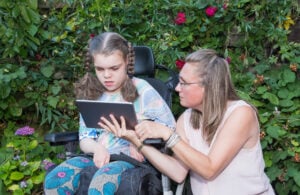
Technology has completely revolutionised all aspects of modern life in just a few years. As an example, you can now see who’s at your front

An education and healthcare plan – known as an ‘EHCP’ – is a document drawn up by a local authority which sets out exactly what

You may or may not have come across the term ‘autistic burnout’. It’s a recent idea that is gradually making its way into mainstream awareness

We did it! We won the People’s Choice Tuition Business of the Year Award 2023 – and are officially the nation’s favourite tutoring business! Not

It goes without saying that we all experience the world through our senses. In fact, it’s how we learn anything – from riding a bike

Remember the thrill of getting pocket money as a child and splurging it on something completely frivolous such as three bags of jelly babies or

Going to school is as much about making friends – and falling out with them – as it is learning your times tables. But for
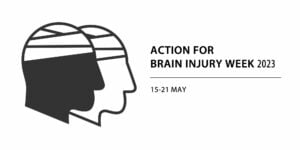
It’s often the case that people who work with children with special needs have some personal experience with SEN themselves. It may be that they
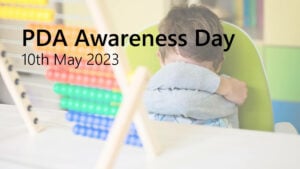
Getting the right help for your child – whether that’s an EHC Plan, a diagnosis or enough one-to-one support at school – is often down

Seeing King Charles III glide solemnly through Westminster Abbey in his velvet robes and regalia for his coronation, how many of us are secretly reminded

Many of us take our ability to speak for granted, only stopping to consider how useful this is when a sore throat or toothache makes

April is Diversity Awareness Month. Human beings, as we know, come in all shapes and sizes, hail from a variety of backgrounds and have hugely

A child with good verbal skills can often demonstrate excellent understanding when social situations or expectations are explained to them but as soon as they’re

Easter is a Christian festival but it also celebrates spring. Whether you’re religious or not, you can’t fail to feel more hopeful when the mornings

You might imagine that school drama lessons would give kids with SEN the perfect opportunity to improve their confidence and social skills along with boosting

Yvonne Newbold knows only too well how difficult it can be bringing up a child with special needs. Her son Toby was born with profound

You can’t cure autism but there are lots of strategies and therapies out there that can help build a child’s confidence and social understanding to

Have you heard of ‘interoception’? Many of us have only recently become aware of the word as it’s a ‘hot topic’ in the field of

Not everyone has heard of dyspraxia – a neurodevelopmental disorder characterised by problems with muscle coordination and poor organisational skills. Even less well-known, perhaps, is

‘Time to Talk Day’ was established in 2014 to encourage friends, family members and colleagues to share their mental and emotional struggles with each other.

Like many innovative ideas, Dan Clark’s enterprise started with a ‘What if…?’ Having worked in a school for many years teaching IT and music, he

Gender and special needs including ASD and PDA is an interesting topic and one that may not often be discussed. We therefore asked Klaudia Matasovska,

Much of what makes Christmas an exciting time of year is its sensory appeal – brightly-coloured wrapping paper, twinkling lights and scented candles, special food

Communication or social interaction is a common challenge for children with special needs, particularly if they’re autistic. Although these issues can’t be completely eradicated, with
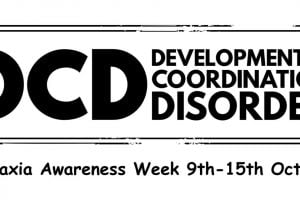
Dyspraxia – also known as Developmental Coordination Disorder (DCD) – is a condition that affects a person’s movement and coordination. It also affects someone’s ability
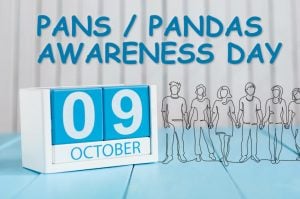
9th October is PANS/ PANDAS awareness day, but what is PANS/ PANDAS? WHAT IS PANS/PANDAS? Many parents of children with special needs have a niggling

If your child has recently received a diagnosis of ADHD, you’ve probably done what many other parents in your situation have done before you and

Autistic people are individuals with their own, unique profile of strengths and difficulties. Even so, in general terms, they will usually have problems with social

Dyslexia is a neurodevelopmental condition that mainly affects a person’s ability to read and write though it can also impact their ability to process and

Obsessive-compulsive disorder – usually known as ‘OCD’ – is a common mental health condition characterised by persistent and unwanted, distressing thoughts. Though these intrusive thoughts

Society’s perception of special educational needs and disability, and how they affect a child’s education and social life is constantly evolving and advancing. However, one profile which remains less understood

The last few years have seen an upsurge in awareness of the differences in boys and girls with special needs. Neurodivergent males, the experts now

Recent years have seen a lot of speculation on the differences between boys and girls with special needs. But when it comes to educating young
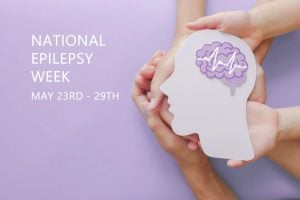
Epilepsy is a neurological condition that affects approximately 600,000 people in the UK. Many of us associate it with what we’ve seen in films and

Discovering that your child has special needs – which could be anything from a physical disability such as hearing impairment or cerebral palsy to the

For most people, the teenage years are a time of great highs and soul-destroying lows. You get to experience some of the freedoms of adult

Helping a child recover from trauma begins with restoring a sense of safety and predictability in their world. When a child feels heard, understood and supported, with access to appropriate

Key Takeaways: PDA is rooted in anxiety and nervous system responses, not behaviour choice Autonomy is a fundamental need for PDAers Persistent Drive for Autonomy reframes PDA through a needs-based

Key Takeaways: Online tutoring for SEN children can reduce anxiety by offering a familiar, predictable learning environment. Many SEN pupils benefit from one-to-one online tutoring tailored to their individual needs

Key Takeaways from SENsational Tutors’ PR and content lead, Milly Allinson: Valuing neurodivergent strengths leads to better outcomes Disengagement and absenteeism are systemic, not behavioural Special interests can be powerful

Key Takeaways: Supporting PDA pupils in education requires reducing demands, not increasing control. PDA is an anxiety-based autistic profile, not oppositional behaviour. Traditional classroom strategies often increase distress for PDA

Key Takeaways: Children with SEND can face a higher risk of bullying, often linked to how they communicate or stand out from peers. Bullying is not always obvious, while changes